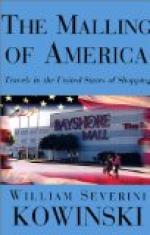Enclosed is an extract from general Lincoln’s letter on the migration of fish. He endeavours to prove, that river fish, after their passage to the sea, whatever time they remain there, always return to the original waters in which they were spawned, unless some unnatural obstructions are thrown in their way.
Yours, &c.
In an old History of Bermuda, published in the year 1661, is the following passage:—
“There is great store of fish, which being mostly unknown to the English, they gave them such names as best liked them, as porgie-fish, hog-fish, yellow-tails, cony-fish, &c.”
EXTRACT.
“Whilst I resided in Philadelphia, in 1782, and 1783, I discovered that the shad brought to market from the Scuylkill were very superiour in flavour and firmness to those taken in the Delaware, which must proceed from their food in that river, previous to their going to the sea; as they are taken by the nets of the fishermen, before they are six hours in that river, on their return. I cannot think it a romantic idea, that the waters are impregnated with certain particles, on which they have been accustomed to feed; which is sufficient to allure them to where they were originally spawned; or that they are piloted there by some of the old fry. This idea will not appear improbable, when we consider the general laws which seem to control the whole finny tribe; and what would be the consequence should they be thrown down? The cod-fish which occupy the banks of Newfoundland, between the latitudes of 41 and 45, are very different, and are kept so distinct, and are so similar on the respective banks, that a man acquainted with that fishery will separate those caught on one bank from those of another, with as much ease as we separate the apple from the pear.
“I am, &c.
“Lincoln.”
Baltimore, 14th October, 1794.
DEAR FRIEND,
On the 7th of September I left the city of Brotherly Love, on my way to this town.
After sailing down the Delaware about two hours, in the water stage, our skipper run us on a sand bank. As there was no remedy but to wait patiently for the flow of tide, a party of us borrowed a boat, and went a shooting on the islands with which this part of the Delaware abounds. We landed at Fort Miflin, which was the principal obstruction to general Howe’s progress up the river, in his way to Philadelphia, and obliged him to go several hundred miles round; this fort also kept the whole british fleet at bay, for some time after the army had taken possession of that city.
Fort Miflin, or Mud Fort (so called from it’s low situation) is on an island in the Delaware, about one third nearer the Pennsylvania, than the Jersey shore.




